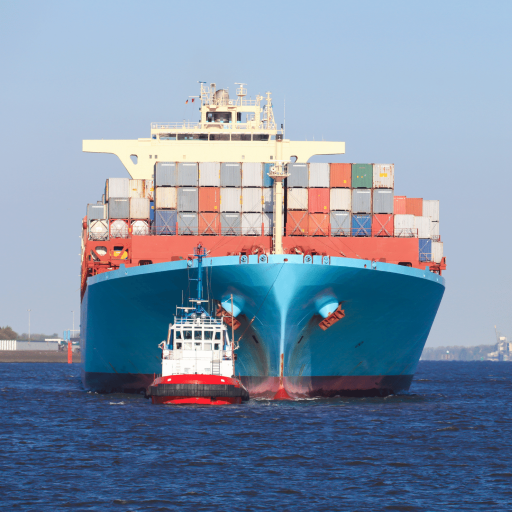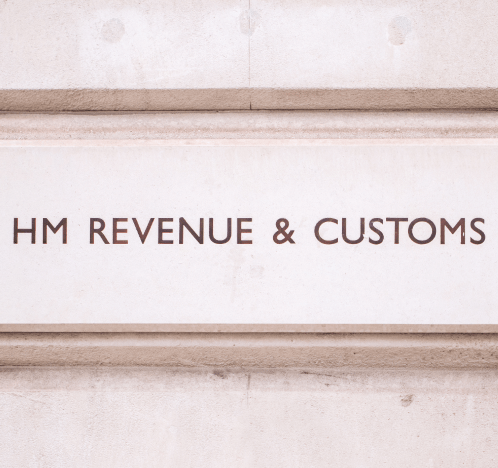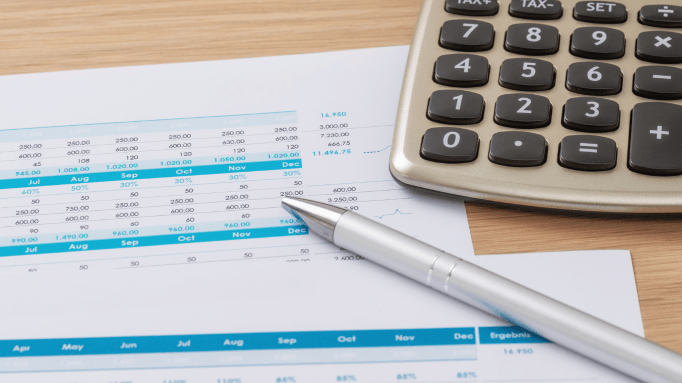Pay less in customs duties when importing
Any business needs to save costs, but did you realise that you may do so while your product is being processed through customs?
We investigate how we may enhance your cash flow and lower your duty expenditure when importing products into the UK through duty management and an initial customs health assessment.
What is Customs Duty? | What is Duty Management? | Customs Duty Management | Customs Duty Health Check
What is Customs Duty?
Charges assessed on commodities when they travel across international boundaries are known as customs duties. To safeguard regional enterprises, industries, and economies, specific authorities and bodies established by local governments levy customs taxes. Various products may be subject to varying customs taxes, depending on their country of origin.
Customs duty, unlike VAT, is typically not refundable, therefore businesses must factor it into their pricing since it could affect their profit margin and capacity to compete. We provide guidance and assistance in all facets of global trade, outlining the duty reliefs and/or regimes that might be applicable to your company.
What is Duty Management?
The implementation of customs regulations that assist you in improving your financial situation regarding duty payments is known as duty management. To achieve this, first decide which customs procedures will benefit your company financially, and then incorporate those procedures into your supply chain. Depending on the items you bring or receive into the UK and how you use them, you might be eligible to pay no customs duty or a reduced amount of charge. A variety of choices and elections are available under UK customs law to lower the cost of customs duties. However, your business will need to take on new responsibilities and manage consequential compliance risks.
The following are the main financial advantages of duty management:
- Enhanced cash flow.
- Reduced duty expenses.
- Spend less on VAT.
- Financial savings via increased productivity and a smaller employee base.
Customs Duty Management
Customs duties and compliance have a hidden impact on businesses in a variety of ways, including sourcing, purchasing, terms of trade, the location and nature of manufacturing and processing operations, storage and warehousing of goods, market selection, distribution methods, licencing, royalty, and transfer pricing agreements. All of these factors have an impact on a business's exposure to customs laws and its liability to pay customs duties.
A company can limit its customs duty liabilities and manage the risks associated with customs compliance if it understands the impact. Reviewing the following will allow for the legal reduction or minimisation of duty paid:
Duty Suspensions and Autonomous Tariff Quotas
Customs Tariff Classification
It can be difficult to determine the proper customs classification or tariff, and mistakes can result in substantial overpayments of customs duties. With over 16,000 codes making up the customs tariff, businesses frequently struggle with product descriptions and classifying goods correctly.
If you categorise your products wrongly, you run the risk of paying incorrect customs duty and import tax. This is why tariff classification is challenging. A retrospective duty or tax bill for the back payment of all the things you misclassified may arise from this. This may result in severe fines and penalties, as well as the seizure or destruction of your items.
Inaccurate classification may also result in overpaying taxes and duties, which can negatively impact the cash flow of your company. Retrospective claims for overpayment of duties are allowed, but you must be able to provide solid evidence to support your changes and claims.
The specific talent of tariff classification necessitates a wide knowledge base and experience. Not every exporter or importer possesses this level of knowledge. ICS Global Services is ready to support your business with advice on how best to classify your products.
Customs Origin of the Goods
The United Kingdom maintains Free Trade Agreements (FTAs) with over 70 countries, allowing eligible items to be imported at a reduced or duty-free price. However, in order to benefit from free trade agreements, companies must take the initiative to ascertain whether the requirements apply, ensure that other parties provide the necessary documentation, and make the necessary claims.
To ascertain the origin of commodities, there are two fundamental concepts: wholly obtained products and products that have experienced a recent substantial transformation. In the event that a single country produces a good, the wholly obtained concept will be realised. Practically speaking, this will mostly apply to goods that are gained in their natural state or that are derived from goods that are obtained entirely. When things are produced in two or more nations, the origin of the commodities is determined using the idea of a last, substantial transformation.
The
tariff classification of commodities is a crucial factor in ascertaining their origin. Items that are traded are listed in the UK Global Tariff, and it is crucial to know their tariff classification before attempting to ascertain where they came from.
Customs Value of the Goods
To arrive at an acceptable customs value, the regulations require that several elements (such as insurance and freight charges to the UK) be added to the cost of the products. Additionally, the customs regulations provide for the deduction of many components from the customs value, thereby reducing the cost of customs duties.
Typically, the transaction value—that is, the amount actually paid for the goods—is the value utilised for customs purposes. This includes the cost of shipping and insurance in addition to the invoice amount. Any further payments for the imported products, whether made or to be made, are also included.
There are six hierarchical approaches of valuation that are applicable. If method 1 (transaction value) cannot be used, then your business should use the next method, and so on:
- The transaction value method.
- The transaction value of identical goods.
- The transaction value of similar goods.
- The deductive method.
- The computed method.
- The residual valuation provision.
Customs Duty Relief
Businesses often employ one of five standard duty relief plans, in addition to several less well-known special reliefs. There are choices and options available for each of these assistance programmes that can broaden their reach, lessen the administrative load, and lower the danger of noncompliance. Based on our observations, these choices are frequently disregarded and lack proper understanding.
The following are examples of common-duty relief:
- Importing goods to process them.
- Importing goods to repair them.
- Importing goods temporarily.
- Customs-bonded warehousing.
- Returned Goods Relief (RGR)
Duty Suspensions and Autonomous Tariff Quotas
The goal of customs duties is to safeguard domestic industry in addition to generating income. Many businesses are not aware that they can apply for tariff suspensions to have customs duties on imports of components and raw materials that are insufficiently available in the UK removed. Companies may request and advocate for additional tariff suspensions, which, if approved, will eliminate taxes on such imports for a minimum of two years.
The purpose of these tariff suspensions is to keep businesses in the UK competitive in the international market. They achieve this by suspending import tariffs under the UK Global Tariff, either fully or partially, on many items, usually those that are inputs into domestic industrial processes.
These procedures have no bearing on other potentially levied taxes, such as VAT, or trade remedy charges, such as anti-dumping duties.
Duty suspensions let duty-free imports into the UK indefinitely and at a lower tariff rate. Autonomous tariff quotas (ATQs) permit imports in restricted amounts at a discounted rate.
Customs Duty and Import VAT Postponement
Although postponement doesn't result in cost savings, it is an easy method to reduce cash flow issues. Two solutions that can delay the collection of duty by at least 45 days are duty deferment accounts and customs warehousing. By lowering the guarantee costs supporting various deferred alternatives, absolute cost reductions can also be achieved in this situation.
For instance, the company can account for import VAT through the VAT return by using postponed VAT accounting (PVA). By doing this, the company avoids having to pay the VAT and then claiming it back.
Reclaim Overpaid Customs Duty
In certain circumstances, recovering overpayment duty associated with previous declarations submitted to HM Revenue & Customs can be feasible. If your company believes that they may be entitled to a refund of customs duty and import VAT, they may be able to use an online service or apply using a reclaim form.
The time limit for submitting a claim for repayment of overpaid duty and VAT is:
- 3 years for overpayments.
- 1 year for rejected imports.
- 3 months for invalidation of a customs entry.
If your company is unsure about making a claim, ICS Global Services will be happy to assist you with the claim, gather evidence, and provide the necessary supporting documents.
Supply Chain Management
By collaborating with your suppliers and customers, the possible advantages of strategic customs planning can frequently be increased dramatically. For instance, you may collaborate to expand the advantages of IP relief by transferring items to your domestic customer's export markets duty-free. When both parties cooperate, supply chain costs are eliminated, but neither party would be eligible for this benefit on its own.
Inward processing (IP relief) permits the importation of products into the UK duty-free and VAT-free for processing. The processed goods that emerge from the processing can be put back into the market or exported again.
Inward Processing (IP)
When non-UK goods are imported, processed, and then exported outside of the UK, inward processing (formerly known as inward processing relief, or IPR) permits the importation of certain commodities free from import VAT and customs duty. Your company won't have to pay import VAT or customs duty on items you import from outside the UK and subsequently reexport if you are allowed to utilise inward processing for processing or repairs. If the duty rate on the processed items is lower than that of the imported goods, you may be able to keep your goods in the UK and pay less in customs duty and import VAT.
Excise duty on items you process can also be postponed, but if you release the goods into free circulation, you will be responsible for paying the duty.
A Bill of Discharge must be lodged with HMRC within a specified timeframe, which accounts for all imported goods to the IP procedure and discharges from the IP procedure. Records of every item you import into IP must be retained for a minimum of four years following export or disposal.
Companies that use inward processing can reduce expenses and save time. The immediate benefit of avoiding import duty payments has a favourable effect on cash flow.
Customs Duty Health Check
We create a "customs perspective picture" of your business during your assessment. This entails investigating tariff classifications, duty and VAT expenditures, the locations from where your items are purchased and sold, as well as the customs procedures that your business currently employs.
After that, we check with you to make sure we understand the situation correctly before recommending the courses of action that will provide your business with the most benefit.
In essence, those solutions optimise your cash flow, train your staff on proper risk-reduction procedures, and eventually contribute to your company's bottom line.
In addition, we support businesses in setting up a framework of controls to manage the risk associated with customs duties and with customs duty audits.
Import Blogs

Supporting your business
We would be delighted to have the chance to find out more about your company. We might be able to identify opportunities for cost reductions and efficiency. Why not schedule a free consultation with our customs duty expert?



